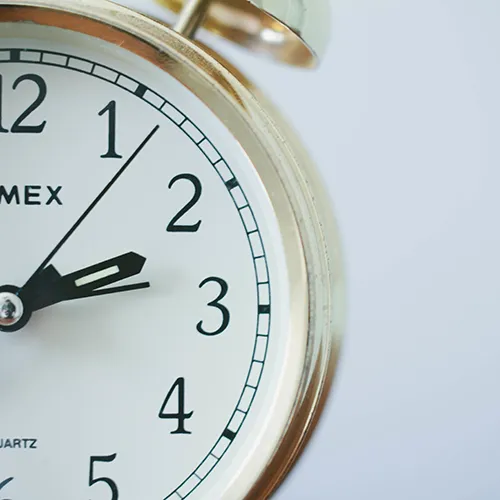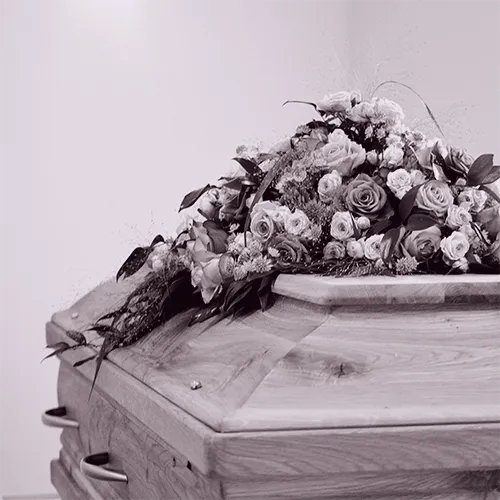Losing a loved one is a highly emotional and an extremely challenging experience. The grieving process aside, there are so many questions to be answered and so many plans to be made. Here we will focus on the question “Can you have a funeral 2 days after death?”.
There are also some important considerations to keep in mind when you are making the final arrangements and, as a seasoned funeral director, I’d like to lend my experience to make this time less stressful for you and your family.
Taking the time to arrange a funeral service is a cathartic experience. But, what if you are in a time crunch when your loved one dies? How quickly can you make the funeral plans and is it possible to have a meaningful service in 2 days time? Do you want a big church venue or a small intimate setting?
One of the most important factors to having a funeral service so swiftly following a death is to have as many arrangements made in advance as possible.
We at US Urns Online have put together a practical guide to help you understand the timing of funerals, state legalities, financial aspects, support resources, and cultural considerations.
Our website is supported by our users. We sometimes earn a commission when you click through the affiliate links on our website. See our privacy policy & disclosures for more information.
Is Two Days Long Enough To Have a Funeral Service?
So, can you have a funeral 2 days after death? The short answer is “Yes,” you can have a funeral service in as little as two days following a death. But it’s important to note that it all hinges on “if” — if all of the necessary tasks are completed and synchronized in a forty-eight hour period.
The average time between death and a funeral is 3 to 7 days, but — with the proper embalming and care — you can have a service further in the future.
If you are planning on a memorial service, that can be done very quickly and efficiently. A memorial service is always held without a body being present. i.e. if cremation was chosen. If it isn’t imperative to you that the cremated remains be present, you can have a memorial service as quickly as you want to.
You do not even need a licensed funeral director to hold a memorial service, so there’s no need for syncing to someone else’s (like a funeral home’s) schedule.
Urns Made in the USA
If you decide to have a home funeral with the body present, you will need a funeral director to be in attendance. Depending on state laws, you may or may not have to have your loved one embalmed.
If you don’t wish to be at the burial and want to leave that in the hands of the funeral home, then that is one less thing for you to have to coordinate. The less that needs to be coordinated, the quicker you can have things accomplished.
Depending upon the day of the week, such as a weekend funeral, there will be extra fees to pay. The cemetery will need to pay their workers overtime and will charge the family extra to cover those wages.
That also pertains to the funeral home. Most funeral homes will hold a funeral service when it is convenient for the family, but it can end up costing you more. A funeral service held on a banker’s holiday can cost up to $1000 extra per day.
When a death occurs on a weekend, that is from closing on Friday to the funeral home opening on Monday morning, not too much will happen. Of course, your loved one will be transferred into the funeral home’s care and likely placed in refrigeration.
A funeral director will reach out to you, offer their condolences, and set up a date and time for the arrangement conference to take place. Once Monday comes around, it is full steam ahead.
All of the businesses that funeral homes need to deal with will be open and available. Your funeral director will coordinate with the cemetery, florist, the county where the death occurred, and anything else that needs to be handled.
Factors That May Delay Funeral Services

Considering the final disposition of your loved one’s body is one of the first and most major of the decisions you will need to make. The final disposition helps the funeral director assist you in making the necessary funeral arrangements.
Will it be a traditional service followed by cremation, a full casket burial at your local cemetery, or a simple cremation followed by a memorial service?
Remember, when making plans, there are some things that are simply out of the family’s control.
- The funeral home’s schedule: Does the funeral home have a director available immediately? Do they have the available time slot you are looking for?
- The cemetery’s schedule: Is there availability on the day and time you require?
- The crematory’s schedule: Can they accommodate you for a witness cremation?
- State laws: An example is “how long is the funeral home required to wait before a cremation can take place?”
- Finances: Now that you have your plans in place, the funeral home needs to get paid. Do you have life insurance for your loved one? Do you need to get funding? Can you afford the plans you’ve made?
All of these are valid points and must be taken into consideration. One of the questions you may ask yourself is — how long can my loved one be held in the funeral home’s care?
Legal Requirements and State Laws
There are state laws to follow when it comes to the time a body must be held before cremation can take place. Some states are 24-hour hold states, some require 48 hours. Any reputable funeral home/crematorium will always follow these state laws.
Please don’t try to get around the appointed time frame. If you come across a funeral home or crematorium that will disregard these laws, that is not the establishment you should choose.
If there is a criminal investigation surrounding your loved one’s death, that can add some extra days or weeks to your plans. An investigation will also delay your receiving copies of the death certificate — especially if you want the cause of death to be listed.
If you don’t wish to wait for the cause of death, the coroner will simply place “pending” in that section of the death certificate.
An organ donation or a post-mortem examination can add a day or two to your timeline, as well. These procedures take time and must be scheduled appropriately.
Writing down your final wishes is always a good plan, but a will is not a good place to state your preferred final disposition. Oftentimes the will is not even read until after the funeral or memorial service has taken place.
You can include your wishes in your will, but make sure you have also left them with your next of kin or family members — someplace safe, but where they can be easily found.
Cultural and Religious Influences
A funeral is considered a religious ritual in most cultures. What often makes a funeral unique is the religious beliefs that are practiced. Each religion has members who will practice their customs differently.
Let’s look at some examples:
- A Muslim funeral: The burial of a practicing Muslim should be held within 24 hours of death. Typically, the whole community will engage in a Muslim funeral. The service centers around prayer, rituals, and rights. It is imperative the body is properly cleansed and shrouded. During the funeral, the men and women sit separately. The iman (priest) stands at the front facing Mecca. The decedent will be placed in front of the iman. The iman will then face away from the mourners and present the funeral prayer. The service will usually last less than an hour. Cremation is forbidden in the Muslim religion.
- A Catholic funeral: A devout catholic is typically buried within three days of death. The catholic funeral is based on the traditional Catholic Rite of Committal. This includes a vigil, a funeral mass, and a committal. The ceremony will honor the decedent and their faith.
- A Jewish funeral: The burial of someone of the Jewish faith should take place within 24 hours of death. The religion restricts any public viewing of the body. The decedent must be properly washed and prepared for burial. This is performed by the Chevra Kadisha. The deceased is placed in a pine casket with no metal hinges or nails. After the funeral, the body will be accompanied to the cemetery and laid to rest. The mourners will say the Mourner’s Kaddish at this time.
The Condition of the Body
The cause of death has a lot to do with the condition of the body. Was it natural causes or caused by external factors?
If death is caused by external factors such as suicide, homicide, or an accident, the medical examiner will be called to the scene. Typically, a post-mortem examination, AKA autopsy, will be performed if the death is caused by external factors. An autopsy can delay the time between death and a funeral service.
How long can a funeral home keep a body before a funeral is a question that gets asked often. As of now, there is no law stating how long a funeral home may keep a body. That being said, many states have rules establishing that human remains must be embalmed or refrigerated within the 24 – 48 hour time frame. That timer starts at the time of death.
Within a few hours of death, rigor mortis sets in. This is the stiffening of the body after death. It takes about two days for rigor mortis to fade, and once it does, decay sets in. A body must be refrigerated or embalmed to slow down the decaying process.
The cause of death can also affect the amount of time a funeral home will hold a body. Check with your funeral director when you sit down to make plans. He or she will be able to answer these questions for you.
Long-Distance Family
In today’s times, families are spread out over substantial distances. Not just long distances across a single country, but over the whole world. For example, the deceased’s family may live in another state or country. You don’t want to rush a funeral service if the most important people can’t make it in two days’ time. Try to be considerate of immediate family members and their needs as well as your own.
Another scenario to consider is, what if your loved one dies a great distance from home and their final wishes were to be buried in their local cemetery? This will definitely take longer than two days to accomplish.
It takes time and money to bring a body home. You will have to work with a funeral home in the area of the death and a local funeral home. You may be dealing with two different cities, states, or even countries.
Burial vs. Cremation
Whether you are deciding between a full service with an open casket, or a direct cremation, there are still necessary arrangements that must be made. Cremation regulations are very strict and must be adhered to. As I stated earlier, most states have a 24 — 48 hour hold on a body before it can be cremated.
There are state and local permits that must be obtained, plus next of kin signatures. All of this can eat up time and make it impossible to get a cremation completed in a 2-day time frame. There are times when a graveside service is the quickest and most efficient way to go. But, a full casket burial is almost always higher priced than a cremation.
Purchasing an urn can be done at the funeral home during arrangement time. If the urn is not kept in stock at the funeral home, they can get it shipped overnight from their supplier.
Some funeral homes also sell headstones. Deciding on a headstone is always a lengthy process. There are designs to be made, proofs that need to be approved, and granite to be ordered. This whole process can take up to a year to get a finished product. Of course, having the headstone ready and waiting isn’t necessary to hold the memorial service.
Financial Considerations for Funeral Planning

Funerals can get expensive and out of control quickly. Everything that happens during funeral planning costs money. Even if you don’t see a dollar amount next to it, that item has been worked into the price.
Some funeral homes will not accept life insurance policies. They don’t want to wait six weeks or longer to collect their money — you can’t blame them, either. The funeral home has bills to pay, too. So, that means you have to come up with the funds and wait for the insurance to pay you.
Getting the funds together might take you a few days and a phone call or two. The funeral director will understand. But you, too, must understand that nothing will be completed until the funeral home is paid.
It is always my advice that a family should not go into debt over a funeral. The first step to help with that is to purchase pre-need insurance. When setting up your estate plan, keep in mind that there will be more assets to distribute if you have already paid for your funeral.
Funeral Planning Resources

Planning your loved one’s funeral is one of the hardest things you will ever have to do. Funeral directors and funeral homes are the perfect resources for funeral planning. You can ask friends for advice and what type of service they would recommend.
What about after the funeral — will you plan on a reception? And if so, where? You may want to think about having it catered in your home or at a favorite venue.
All of this can seem so overwhelming, and let’s face it, it is expensive. If you, like so many others, don’t have the financial resources, what do you do then? The most common option is to ask for funeral donations. This can seem a little daunting and maybe tacky. But, we funeral directors see it often. There is nothing wrong with politely requesting donations to help cover funeral or immediate expenses.
If asking for donations is out of the question, there are some local and state government agencies that can assist. Don’t hesitate to take the time to fill out the applications.
It can be time-consuming and even frustrating, and don’t expect the funds to be instant. There is always lots of red tape when it comes to applying and qualifying for these programs.
It’s always hard to lose someone you love. Even if you “know” the time is coming, we are just never quite ready for the time to arrive. You can plan all you want, but your heart will still break, and the tears will still flow. But know that you can ask for help from friends and family.
Your church may also be a great resource for you. And of course, ask your trusted funeral director, he or she should have knowledge of grief support groups in your area.
When grieving families share their sorrow with me, I gently remind them how life will still go on, but it has changed. They will learn to live “differently”. People cope and adjust to grief in their own time. Take the time you need; rest and recover. And don’t forget to rely on friends and family for their support.
So, when wondering “can you have a funeral 2 days after death?”, the answer depends on your personal situation. We hope this guide has provided you with some insight on funeral prepping and factors that may delay a funeral. If you have any questions, please don’t hesitate to leave a comment down below.
Read Next: Cremation, Burial, and More Final Disposition Options





